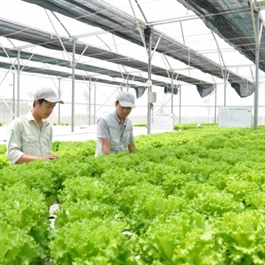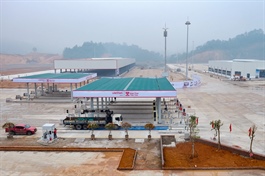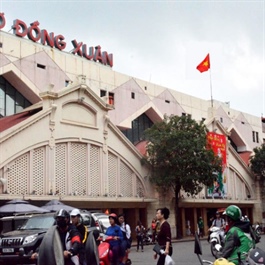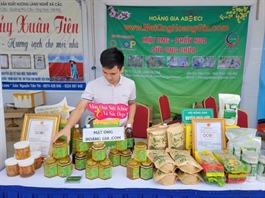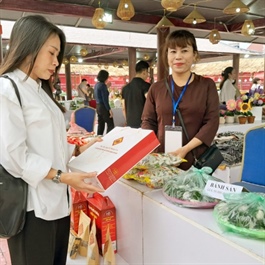Vietnam to strengthen its role in global supply chains
Vietnam to strengthen its role in global supply chains
Countries like Vietnam and Malaysia are navigating the complexities of geopolitical tensions by maintaining neutrality between United States and China-aligned blocs, enabling them to attract diverse investments and strengthen their role in global supply chains.

Kearney, a top global consulting firm, in collaboration with the World Economic Forum, released a report on December 10 titled, 'Beyond Cost: Country Readiness for Manufacturing and Supply Chains,' which examines the evolving global manufacturing landscape and the critical factors shaping country competitiveness. The report is based on insights from over 300 global operations executives and 60 in-depth consultations.
Global value chains are undergoing a profound transformation following recent elections, escalating global conflicts, shifting sustainability priorities and the rapid adoption of transformative technologies like AI.
As manufacturers assess their footprints and network strategies, the trend of making location decisions based on cost is evolving into a more complex decision-making process, factoring a country’s readiness to provide an environment that aligns with strategic priorities.
To guide policymakers and industries, the report identifies seven country readiness factors driving private sector investment and shaping countries' attractiveness amidst the ongoing rewiring of global value chains.
Specifically, the report highlighted Vietnam’s strategic advantage. With trade agreements like the EU-Vietnam Free Trade Agreement eliminating tariffs, Vietnam is leveraging its position to expand its manufacturing exports to the EU. The country’s modern industrial parks and improving logistics make it a compelling destination for companies seeking cost-effective, scalable operations.
Meanwhile, Malaysia’s National Semiconductor Strategy is designed to solidify Malaysia's role in the global semiconductor value chain through investments in advanced infrastructure, workforce development, and industry partnerships, reinforcing its position in high-tech manufacturing.
Recognised as a model for high-tech and sustainable manufacturing, Singapore combines advanced infrastructure, pro-business policies, and solid trade connectivity. Initiatives such as Siemens’ partnership with the Economic Development Board to create smart manufacturing facilities powered by renewable energy to meet the nation’s commitment to achieving net-zero emissions by 2050 further demonstrate its leadership.
While India’s economy has traditionally been service-driven, its manufacturing sector is on the rise, with states like Tamil Nadu and Maharashtra emerging as hubs for automotive, electronics, and textile production. This reflects the government's push to strengthen manufacturing competitiveness.
Keat Yap, partner and Asia-Pacific co-lead of Operations and Performance at Kearney, said, "The Asia-Pacific region is at the forefront of a seismic shift in global manufacturing and supply chains. From Singapore’s leadership in high-tech, sustainable manufacturing to Vietnam and Malaysia’s emergence as neutral and innovative manufacturing hubs, Asia-Pacific nations are demonstrating their ability to adapt, innovate, and compete in a rapidly evolving landscape. As businesses prioritise regionalisation and environmental, social, and governance considerations, we believe the region is well positioned as a critical driver of resilient and future-ready supply chains."







